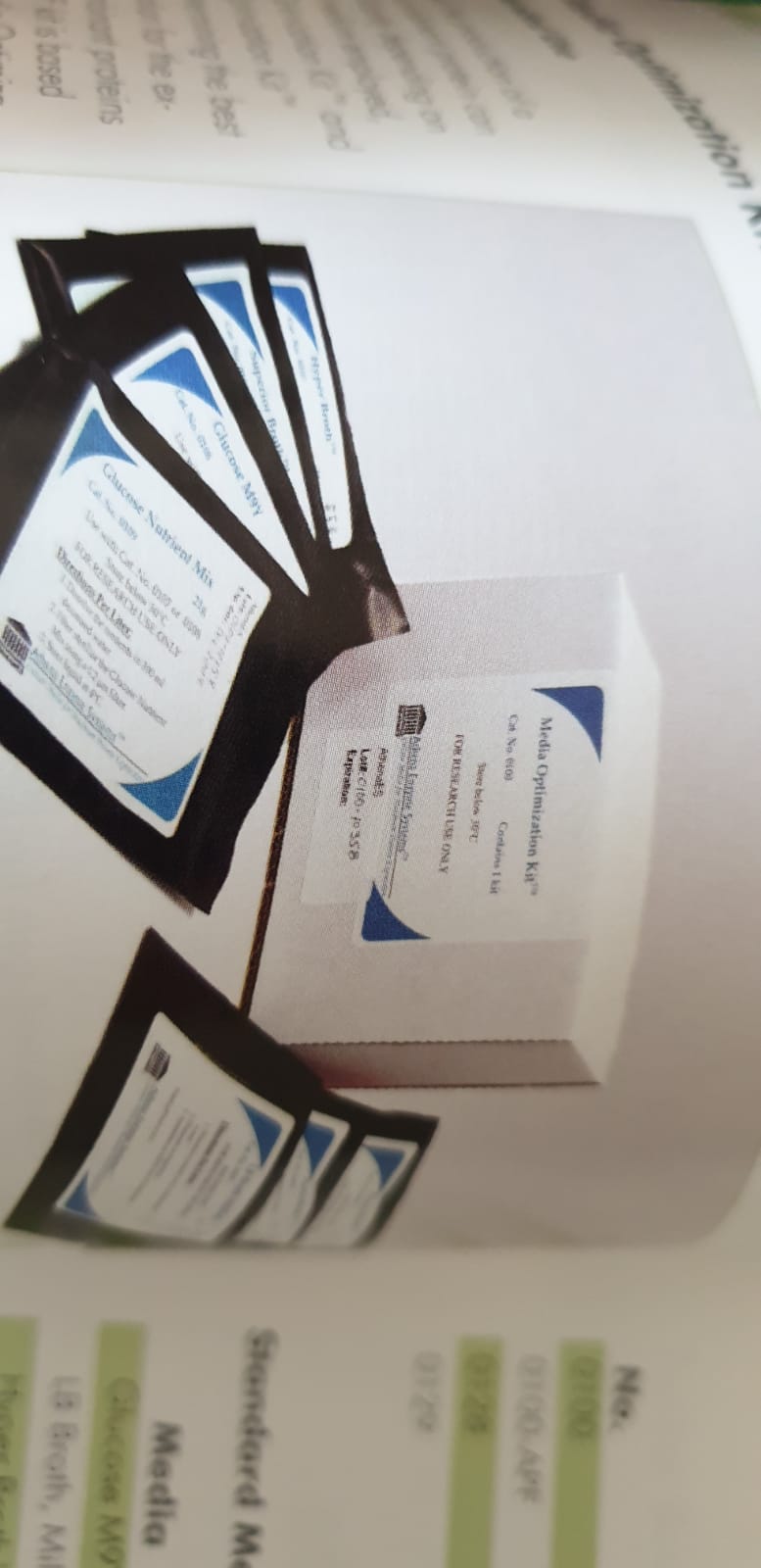27 sierpnia, 2020
Antibody Immunity than Vaccinees Despite Similar Levels of Circulating Immunoglobulins
Ebola Virus Illness Survivors Present Extra Environment friendly Antibody Immunity than Vaccinees Regardless of Comparable Ranges of Circulating Immunoglobulins
The final seven years have seen the best surge of Ebola virus illness (EVD) circumstances in equatorial Africa, together with the 2013-2016 epidemic in West Africa and the latest epidemics within the Democratic Republic of Congo (DRC). The vaccine scientific trials that befell in West Africa and the DRC, in addition to follow-up research in collaboration with EVD survivor communities, have for the primary time allowed researchers to check immune reminiscence induced by pure an infection and vaccination.
These comparisons could also be related to guage the putative effectiveness of vaccines and candidate medical countermeasures corresponding to convalescent plasma switch.
On this research, we in contrast the long-term performance of anti-EBOV glycoprotein (GP) antibodies from EVD survivors with that from volunteers who obtained the recombinant vesicular stomatitis virus vectored vaccine (rVSV-ZEBOV) throughout the Section I scientific trial in Hamburg.
Our research highlights necessary variations between EBOV vaccination and pure an infection and offers a framework for comparability with different vaccine candidates.
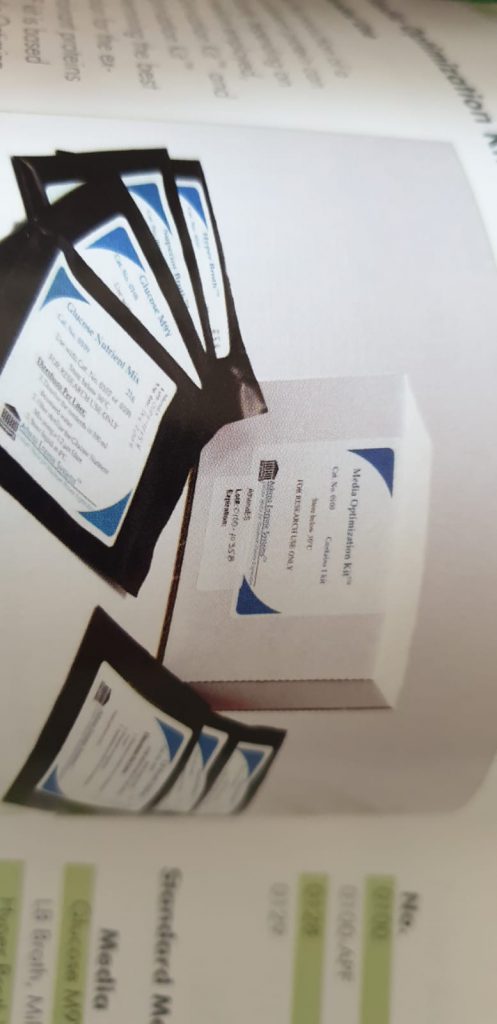
cDNA
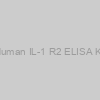 Human IL-1 R2 ELISA Kit |
|||
| GWB-SKR129 | GenWay Biotech | 96 Tests | Ask for price |
 IL 1 R2 Recombinant Protein |
|||
| 96-436 | ProSci | 0.1 mg | EUR 619.8 |
|
Description: Interleukin-1 receptor type 2 (IL1R2) is also known as CD121 antigen-like family member B (CDw121b), IL-1 type II receptor, Interleukin-1 receptor type II, belongs to the interleukin-1 receptor family. Two distinct types of IL1 receptors which are able to bind IL1 specifically have been identified, designated as IL1RI (IL1RA) and IL1RII (IL1RB). IL1R2 is non-signaling receptor for IL1A, IL1B and IL1RN, reduces IL1B activities. Serves as a decoy receptor by competetive binding to IL1B and preventing its binding to IL1R1. IL1R2 modulates cellular response through non-signaling association with IL1RAP after binding to IL1B. IL1R2 (membrane and secreted forms) preferentially binds IL1B and poorly IL1A and IL1RN. The secreted IL1R2 recruits secreted IL1RAP with high affinity; this complex formation may be the dominant mechanism for neutralization of IL1B by secreted/soluble receptors. |
|||
 : 96 Wells (OKAG00129)) IL-1 R2 ELISA Kit (Human) : 96 Wells (OKAG00129) |
|||
| OKAG00129 | Aviva Systems Biology | 96 Wells | EUR 715.2 |
|
Description: Description of target: The protein encoded by this gene is a cytokine receptor that belongs to the interleukin 1 receptor family. This protein binds interleukin alpha (IL1A), interleukin beta (IL1B), and interleukin 1 receptor, type I(IL1R1/IL1RA), and acts as a decoy receptor that inhibits the activity of its ligands. Interleukin 4 (IL4) is reported to antagonize the activity of interleukin 1 by inducing the expression and release of this cytokine. This gene and three other genes form a cytokine receptor gene cluster on chromosome 2q12. Alternative splicing results in multiple transcript variants and protein isoforms. Alternative splicing produces both membrane-bound and soluble proteins. A soluble protein is also produced by proteolytic cleavage.;Species reactivity: Human;Application: ELISA;Assay info: Quantitative Colorimentric Sandwich ELISA;Sensitivity: 32 pg/mL |
|||
 Recombinant Mouse IL-1 R2/IL-1 RII Protein |
|||
| RP00726 | Abclonal | 10μg | EUR 136.5 |
|
|||
 anti-PKA R2 |
|||
| YF-PA13990 | Abfrontier | 50 ul | EUR 435.6 |
|
Description: Mouse polyclonal to PKA R2 |
|||
 anti-PKA R2 |
|||
| YF-PA24454 | Abfrontier | 50 ul | EUR 400.8 |
|
Description: Mouse polyclonal to PKA R2 |
|||
) TNF-R2 (human) |
|||
| TN-004 | Kamiya Biomedical Company | 50 µg | EUR 738 |
 Anti‐Human IL‐17A |
|||
| E2790213 | EnoGene | 100ul | EUR 225 |
|
Description: Available in various conjugation types. |
|||
 Anti-GABAB R2 antibody |
|||
| STJ96379 | St John's Laboratory | 200 µl | EUR 236.4 |
|
Description: Rabbit polyclonal to GABAB R2. |
|||
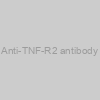 Anti-TNF-R2 antibody |
|||
| STJ96053 | St John's Laboratory | 200 µl | EUR 236.4 |
|
Description: Rabbit polyclonal to TNF-R2. |
|||
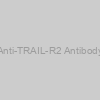 Anti-TRAIL-R2 Antibody |
|||
| A00410-1 | BosterBio | 200ug | EUR 565.2 |
|
Description: Goat Polyclonal TRAIL-R2 Antibody. Validated in IF, WB and tested in Human, Mouse. |
|||
 antibody) Anti-MonoMethylH3R2me1-(R2) antibody |
|||
| STJ24010 | St John's Laboratory | 100 µl | EUR 471.6 |
|
Description: Histones are basic nuclear proteins that are responsible for the nucleosome structure of the chromosomal fiber in eukaryotes. Nucleosomes consist of approximately 146 bp of DNA wrapped around a histone octamer composed of pairs of each of the four core histones (H2A, H2B, H3, and H4). The chromatin fiber is further compacted through the interaction of a linker histone, H1, with the DNA between the nucleosomes to form higher order chromatin structures. This gene is intronless and encodes a replication-dependent histone that is a member of the histone H3 family. Transcripts from this gene lack polyA tails; instead, they contain a palindromic termination element. This gene is located separately from the other H3 genes that are in the histone gene cluster on chromosome 6p22-p21.3. |
|||
) Anti-PKA R2 (6A9) |
|||
| YF-MA10721 | Abfrontier | 100 ug | EUR 435.6 |
|
Description: Mouse monoclonal to PKA R2 |
|||
) Anti-PKA R2 (3C7) |
|||
| YF-MA14876 | Abfrontier | 100 ug | EUR 435.6 |
|
Description: Mouse monoclonal to PKA R2 |
|||
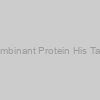 IL 1 R2 Recombinant Protein His Tag Lyophilized |
|||
| IIL1R2RHISLY100UG | Innovative research | each | EUR 721 |
|
|||
|
Description: IL 1 R2 Recombinant Protein His Tag Lyophilized |
|||
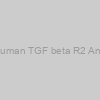 Anti-Human TGF beta R2 Antibody |
|||
| 101-M178 | ReliaTech | 100 µg | EUR 399 |
|
Description: Most cell types express three sizes of receptors for TGF-beta. These are designated Type I (53 kDa), Type II (70 - 85 kDa), and Type III (250 - 350 kDa). The Type I receptor is a membrane-bound serine/threonine kinase that apparently requires the presence of the Type II receptor to bind TGF-beta. The Type II receptor is also a membrane-bound serine/threonine kinase that binds TGF-beta1 and TGF-beta 3 with high affinity and TGF-beta 2 with much lower affinity. The Type I and Type II receptors together form a heterodimeric signaling complex that is essential for the transduction of the anti-proliferative signals of TGF-beta. The Type III receptor is a transmembrane proteoglycan with a large extracellular domain and a 43 amino acid residue cytoplasmic domain. The cytoplasmic domain of the Type III receptor lacks an obvious signaling motif and the receptor may not be involved directly in signal transduction. |
|||
) human anti-human IL-1 β mAb(14) |
|||
| E4A09D02-14 | EnoGene | 50ug | EUR 275 |
|
Description: Biotin-Conjugated, FITC-Conjugated , AF350 Conjugated , AF405M-Conjugated ,AF488-Conjugated, AF514-Conjugated ,AF532-Conjugated, AF555-Conjugated ,AF568-Conjugated , HRP-Conjugated, AF405S-Conjugated, AF405L-Conjugated , AF546-Conjugated, AF594-Conjugated , AF610-Conjugated, AF635-Conjugated , AF647-Conjugated , AF680-Conjugated , AF700-Conjugated , AF750-Conjugated , AF790-Conjugated , APC-Conjugated , PE-Conjugated , Cy3-Conjugated , Cy5-Conjugated , Cy5.5-Conjugated , Cy7-Conjugated Antibody |
|||
) human anti-human IL-1 β mAb(7Z) |
|||
| E4A09D02-7Z | EnoGene | 50ug | EUR 275 |
|
Description: Biotin-Conjugated, FITC-Conjugated , AF350 Conjugated , AF405M-Conjugated ,AF488-Conjugated, AF514-Conjugated ,AF532-Conjugated, AF555-Conjugated ,AF568-Conjugated , HRP-Conjugated, AF405S-Conjugated, AF405L-Conjugated , AF546-Conjugated, AF594-Conjugated , AF610-Conjugated, AF635-Conjugated , AF647-Conjugated , AF680-Conjugated , AF700-Conjugated , AF750-Conjugated , AF790-Conjugated , APC-Conjugated , PE-Conjugated , Cy3-Conjugated , Cy5-Conjugated , Cy5.5-Conjugated , Cy7-Conjugated Antibody |
|||
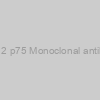 Rat Anti-Mouse IL-12 p75 Monoclonal antibody, clone R2-9A5 |
|||
| CABT-L4486-1mg | Creative Diagnostics | 1 mg | EUR 1076.4 |
 Rat Anti-Mouse IL-12 p75 Monoclonal antibody, clone R2-9A5 |
|||
| CABT-L4486-5mg | Creative Diagnostics | 5 mg | EUR 2886 |
 Rat Anti-Mouse IL-12 p75 Monoclonal antibody, clone R2-9A5 |
|||
| CABT-L4486 | Creative Diagnostics | 1 mg; 5 mg | Ask for price |
|
|||
|
Description: Rat |
|||
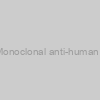 Mouse Monoclonal anti-human FGF-R2 |
|||
| hAP-0278 | Angio Proteomie | 100ug | EUR 250 |
 Mouse Monoclonal anti-human FGF-R2 |
|||
| hAP-0278A | Angio Proteomie | 100ug | EUR 250 |
 Mouse Monoclonal anti-human Orexin R2 |
|||
| hAP-0850 | Angio Proteomie | 50ug | EUR 400 |
 Antibody) Anti- Rabbit Anti-Human DR5 (TRAIL-R2) Antibody |
|||
| GWB-18A3C7 | GenWay Biotech | 0.1 mg | Ask for price |
|
|||
) Sheep Polyclonal anti-human VEGF R2 (KDR, Flk-1) |
|||
| hAP-5552 | Angio Proteomie | 50ug | EUR 400 |
R2 Antibody) Anti-GABA(B)R2 Antibody |
|||
| 56523 | Genovis AB | 100ug | EUR 466 |
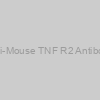 Anti-Mouse TNF R2 Antibody |
|||
| 103-M134 | ReliaTech | 100 µg | EUR 399 |
|
Description: CD120b is a 75 kD type I transmembrane protein, also known as Tumor Necrosis Factor Receptor Type II (TNFRII) or p75. It is expressed on a variety of cells at low levels; the expression is upregulated upon activation. This receptor binds both TNF- α and β. |
|||
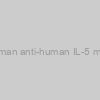 human anti-human IL-5 mAb |
|||
| E4A09D05 | EnoGene | 50ug | EUR 255 |
|
Description: Available in various conjugation types. |
|||
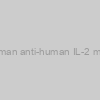 human anti-human IL-2 mAb |
|||
| E409C12-h100 | EnoGene | 100μL | EUR 395 |
|
Description: Available in various conjugation types. |
|||
 human anti-human IL-4 mAb |
|||
| E409C13-h100 | EnoGene | 100μL | EUR 395 |
|
Description: Available in various conjugation types. |
|||
 human anti-human IL-5 mAb |
|||
| E409C14-h100 | EnoGene | 100μL | EUR 395 |
|
Description: Available in various conjugation types. |
|||
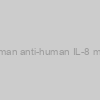 human anti-human IL-8 mAb |
|||
| E409C16-h100 | EnoGene | 100μL | EUR 395 |
|
Description: Available in various conjugation types. |
|||
 R2 Purified) Anti-GABA(B) R2 Purified |
|||
| 11-551-C100 | ExBio | 0.1 mg | EUR 198 |
|
|||
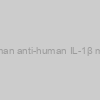 human anti-human IL-1β mAb |
|||
| E409C11-h100 | EnoGene | 100μL | EUR 395 |
|
Description: Available in various conjugation types. |
|||
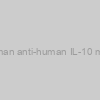 human anti-human IL-10 mAb |
|||
| E409C17-h100 | EnoGene | 100μL | EUR 395 |
|
Description: Available in various conjugation types. |
|||
) PE anti-human CD262 (DR5, TRAIL-R2) |
|||
| E16FHP262-025 | EnoGene | 25 tests | EUR 476.67 |
|
Description: Available in various conjugation types. |
|||
) PE anti-human CD262 (DR5, TRAIL-R2) |
|||
| E16FHP262-100 | EnoGene | 100 tests | EUR 1083.33 |
|
Description: Available in various conjugation types. |
|||
) APC anti-human CD262 (DR5, TRAIL-R2) |
|||
| E16FHA262-025 | EnoGene | 25 tests | EUR 541.67 |
|
Description: Available in various conjugation types. |
|||
) APC anti-human CD262 (DR5, TRAIL-R2) |
|||
| E16FHA262-100 | EnoGene | 100 tests | EUR 1278.33 |
|
Description: Available in various conjugation types. |
|||
) human anti-human IL-12/IL-23 p40 mAb(3H2) |
|||
| E4A09D33-3H2 | EnoGene | 50ug | EUR 275 |
|
Description: Biotin-Conjugated, FITC-Conjugated , AF350 Conjugated , AF405M-Conjugated ,AF488-Conjugated, AF514-Conjugated ,AF532-Conjugated, AF555-Conjugated ,AF568-Conjugated , HRP-Conjugated, AF405S-Conjugated, AF405L-Conjugated , AF546-Conjugated, AF594-Conjugated , AF610-Conjugated, AF635-Conjugated , AF647-Conjugated , AF680-Conjugated , AF700-Conjugated , AF750-Conjugated , AF790-Conjugated , APC-Conjugated , PE-Conjugated , Cy3-Conjugated , Cy5-Conjugated , Cy5.5-Conjugated , Cy7-Conjugated Antibody |
|||
) human anti-human IL-12/IL-23 p40 mAb(5N9) |
|||
| E4A09D33-5N9 | EnoGene | 50ug | EUR 275 |
|
Description: Biotin-Conjugated, FITC-Conjugated , AF350 Conjugated , AF405M-Conjugated ,AF488-Conjugated, AF514-Conjugated ,AF532-Conjugated, AF555-Conjugated ,AF568-Conjugated , HRP-Conjugated, AF405S-Conjugated, AF405L-Conjugated , AF546-Conjugated, AF594-Conjugated , AF610-Conjugated, AF635-Conjugated , AF647-Conjugated , AF680-Conjugated , AF700-Conjugated , AF750-Conjugated , AF790-Conjugated , APC-Conjugated , PE-Conjugated , Cy3-Conjugated , Cy5-Conjugated , Cy5.5-Conjugated , Cy7-Conjugated Antibody |
|||
) human anti-human IL-12/IL-23 p40 mAb(1G11) |
|||
| E4A09D33-1G11 | EnoGene | 50ug | EUR 275 |
|
Description: Biotin-Conjugated, FITC-Conjugated , AF350 Conjugated , AF405M-Conjugated ,AF488-Conjugated, AF514-Conjugated ,AF532-Conjugated, AF555-Conjugated ,AF568-Conjugated , HRP-Conjugated, AF405S-Conjugated, AF405L-Conjugated , AF546-Conjugated, AF594-Conjugated , AF610-Conjugated, AF635-Conjugated , AF647-Conjugated , AF680-Conjugated , AF700-Conjugated , AF750-Conjugated , AF790-Conjugated , APC-Conjugated , PE-Conjugated , Cy3-Conjugated , Cy5-Conjugated , Cy5.5-Conjugated , Cy7-Conjugated Antibody |
|||
) Purified anti-human CD262 (DR5, TRAIL-R2) |
|||
| E16FHU262-100U | EnoGene | 100 μg | EUR 758.33 |
|
Description: Available in various conjugation types. |
|||
) Mouse Monoclonal anti-human FGF-R2 (IIIB) |
|||
| hAP-0278C | Angio Proteomie | 100ug | EUR 250 |
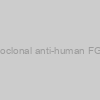 Mouse Monoclonal anti-human FGF-R2 Alpha |
|||
| hAP-0278B | Angio Proteomie | 100ug | EUR 250 |
 ELISA Kit) VEGF-R2 (Human) ELISA Kit |
|||
| EKA51976-5x96T | Biomatik Corporation | 5x96T | Ask for price |
 ELISA Kit) VEGF-R2 (Human) ELISA Kit |
|||
| EKA51976-96T | Biomatik Corporation | 96T | EUR 446.9 |
 ELISA Kit) sTNF-R2 (Human) ELISA Kit |
|||
| EKA52066-5x96T | Biomatik Corporation | 5x96T | Ask for price |
 ELISA Kit) sTNF-R2 (Human) ELISA Kit |
|||
| EKA52066-96T | Biomatik Corporation | 96T | EUR 446.9 |
 Human VEGF-R2 ELISA Kit |
|||
| GWB-SKR160 | GenWay Biotech | 96 Tests | Ask for price |
 Human sTNF-R2 ELISA Kit |
|||
| GWB-SKR250 | GenWay Biotech | 96 Tests | Ask for price |
 ELISA Kit) TGFbeta-R2 (Human) ELISA Kit |
|||
| EKA51981-5x96T | Biomatik Corporation | 5x96T | Ask for price |
 ELISA Kit) TGFbeta-R2 (Human) ELISA Kit |
|||
| EKA51981-96T | Biomatik Corporation | 96T | EUR 446.9 |
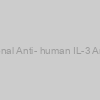 Polyclonal Anti- human IL-3 Antibody |
|||
| GWB-BBP009 | GenWay Biotech | 0.1 mg | Ask for price |
 Polyclonal Anti- human IL-4 Antibody |
|||
| GWB-BBP010 | GenWay Biotech | 0.1 mg | Ask for price |
 Polyclonal Anti- human IL-6 Antibody |
|||
| GWB-BBP013 | GenWay Biotech | 0.1 mg | Ask for price |
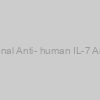 Polyclonal Anti- human IL-7 Antibody |
|||
| GWB-BBP014 | GenWay Biotech | 0.1 mg | Ask for price |
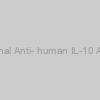 Polyclonal Anti- human IL-10 Antibody |
|||
| GWB-BBP015 | GenWay Biotech | 0.1 mg | Ask for price |
 TRAIL-R2, Human Recombinant Protein |
|||
| TR-005 | Kamiya Biomedical Company | 50 µg | EUR 703 |
) human anti-human IL-2 mAb (D1) |
|||
| E4A09D03-A7C | EnoGene | 50ug | EUR 255 |
|
Description: Available in various conjugation types. |
|||
) human anti-human IL-2 mAb (F5) |
|||
| E4A09D03-B1F | EnoGene | 50ug | EUR 255 |
|
Description: Available in various conjugation types. |
|||
) human anti-human IL-2 mAb (16) |
|||
| E4A09D03-C3C | EnoGene | 50ug | EUR 255 |
|
Description: Available in various conjugation types. |
|||
) human anti-human IL-4 mAb (12) |
|||
| E4A09D04-12 | EnoGene | 50ug | EUR 255 |
|
Description: Available in various conjugation types. |
|||
) human anti-human IL-4 mAb (52) |
|||
| E4A09D04-52 | EnoGene | 50ug | EUR 255 |
|
Description: Available in various conjugation types. |
|||
) human anti-human IL-4 mAb (C1) |
|||
| E4A09D04-C1 | EnoGene | 50ug | EUR 255 |
|
Description: Available in various conjugation types. |
|||
) human anti-human IL-6 mAb (A3) |
|||
| E4A09D06-hA3 | EnoGene | 50ug | EUR 255 |
|
Description: Available in various conjugation types. |
|||
) human anti-human IL-8 mAb (A5) |
|||
| E4A09D07-A5A | EnoGene | 50ug | EUR 255 |
|
Description: Available in various conjugation types. |
|||
) human anti-human IL-8 mAb (6G) |
|||
| E4A09D07-B5G | EnoGene | 50ug | EUR 255 |
|
Description: Available in various conjugation types. |
|||
) human anti-human IL-8 mAb (AB) |
|||
| E4A09D07-C8A | EnoGene | 50ug | EUR 255 |
|
Description: Available in various conjugation types. |
|||
) human anti-human IL-8 mAb(N2) |
|||
| E4A09D07-N2 | EnoGene | 50ug | EUR 275 |
|
Description: Biotin-Conjugated, FITC-Conjugated , AF350 Conjugated , AF405M-Conjugated ,AF488-Conjugated, AF514-Conjugated ,AF532-Conjugated, AF555-Conjugated ,AF568-Conjugated , HRP-Conjugated, AF405S-Conjugated, AF405L-Conjugated , AF546-Conjugated, AF594-Conjugated , AF610-Conjugated, AF635-Conjugated , AF647-Conjugated , AF680-Conjugated , AF700-Conjugated , AF750-Conjugated , AF790-Conjugated , APC-Conjugated , PE-Conjugated , Cy3-Conjugated , Cy5-Conjugated , Cy5.5-Conjugated , Cy7-Conjugated Antibody |
|||
) human anti-human IL-8 mAb(N8) |
|||
| E4A09D07-N8 | EnoGene | 50ug | EUR 275 |
|
Description: Biotin-Conjugated, FITC-Conjugated , AF350 Conjugated , AF405M-Conjugated ,AF488-Conjugated, AF514-Conjugated ,AF532-Conjugated, AF555-Conjugated ,AF568-Conjugated , HRP-Conjugated, AF405S-Conjugated, AF405L-Conjugated , AF546-Conjugated, AF594-Conjugated , AF610-Conjugated, AF635-Conjugated , AF647-Conjugated , AF680-Conjugated , AF700-Conjugated , AF750-Conjugated , AF790-Conjugated , APC-Conjugated , PE-Conjugated , Cy3-Conjugated , Cy5-Conjugated , Cy5.5-Conjugated , Cy7-Conjugated Antibody |
|||
) human anti-human IL-1β mAb (95) |
|||
| E4A09D02-h9 | EnoGene | 50ug | EUR 255 |
|
Description: Available in various conjugation types. |
|||
) human anti-human IL-1β mAb (Ca) |
|||
| E4A09D02-hA | EnoGene | 50ug | EUR 255 |
|
Description: Available in various conjugation types. |
|||
) human anti-human IL-1β mAb (Ge) |
|||
| E4A09D02-hB | EnoGene | 50ug | EUR 255 |
|
Description: Available in various conjugation types. |
|||
) human anti-human IL-6 mAb (10C) |
|||
| E4A09D06-h10C | EnoGene | 50ug | EUR 255 |
|
Description: Available in various conjugation types. |
|||
) human anti-human IL-6 mAb (2D2) |
|||
| E4A09D06-hD2 | EnoGene | 50ug | EUR 255 |
|
Description: Available in various conjugation types. |
|||
) human anti-human IL-10 mAb (97) |
|||
| E4A09D08-A9D | EnoGene | 50ug | EUR 255 |
|
Description: Available in various conjugation types. |
|||
) human anti-human IL-10 mAb (18) |
|||
| E4A09D08-B2G | EnoGene | 50ug | EUR 255 |
|
Description: Available in various conjugation types. |
|||
) human anti-human IL-15 mAb(1A) |
|||
| E4A09D21-1A | EnoGene | 50ug | EUR 275 |
|
Description: Biotin-Conjugated, FITC-Conjugated , AF350 Conjugated , AF405M-Conjugated ,AF488-Conjugated, AF514-Conjugated ,AF532-Conjugated, AF555-Conjugated ,AF568-Conjugated , HRP-Conjugated, AF405S-Conjugated, AF405L-Conjugated , AF546-Conjugated, AF594-Conjugated , AF610-Conjugated, AF635-Conjugated , AF647-Conjugated , AF680-Conjugated , AF700-Conjugated , AF750-Conjugated , AF790-Conjugated , APC-Conjugated , PE-Conjugated , Cy3-Conjugated , Cy5-Conjugated , Cy5.5-Conjugated , Cy7-Conjugated Antibody |
|||
) human anti-human IL-15 mAb(2B) |
|||
| E4A09D21-2B | EnoGene | 50ug | EUR 275 |
|
Description: Biotin-Conjugated, FITC-Conjugated , AF350 Conjugated , AF405M-Conjugated ,AF488-Conjugated, AF514-Conjugated ,AF532-Conjugated, AF555-Conjugated ,AF568-Conjugated , HRP-Conjugated, AF405S-Conjugated, AF405L-Conjugated , AF546-Conjugated, AF594-Conjugated , AF610-Conjugated, AF635-Conjugated , AF647-Conjugated , AF680-Conjugated , AF700-Conjugated , AF750-Conjugated , AF790-Conjugated , APC-Conjugated , PE-Conjugated , Cy3-Conjugated , Cy5-Conjugated , Cy5.5-Conjugated , Cy7-Conjugated Antibody |
|||
) human anti-human IL-15 mAb(7C) |
|||
| E4A09D21-7C | EnoGene | 50ug | EUR 275 |
|
Description: Biotin-Conjugated, FITC-Conjugated , AF350 Conjugated , AF405M-Conjugated ,AF488-Conjugated, AF514-Conjugated ,AF532-Conjugated, AF555-Conjugated ,AF568-Conjugated , HRP-Conjugated, AF405S-Conjugated, AF405L-Conjugated , AF546-Conjugated, AF594-Conjugated , AF610-Conjugated, AF635-Conjugated , AF647-Conjugated , AF680-Conjugated , AF700-Conjugated , AF750-Conjugated , AF790-Conjugated , APC-Conjugated , PE-Conjugated , Cy3-Conjugated , Cy5-Conjugated , Cy5.5-Conjugated , Cy7-Conjugated Antibody |
|||
) human anti-human IL-15 mAb(9E) |
|||
| E4A09D21-9E | EnoGene | 50ug | EUR 275 |
|
Description: Biotin-Conjugated, FITC-Conjugated , AF350 Conjugated , AF405M-Conjugated ,AF488-Conjugated, AF514-Conjugated ,AF532-Conjugated, AF555-Conjugated ,AF568-Conjugated , HRP-Conjugated, AF405S-Conjugated, AF405L-Conjugated , AF546-Conjugated, AF594-Conjugated , AF610-Conjugated, AF635-Conjugated , AF647-Conjugated , AF680-Conjugated , AF700-Conjugated , AF750-Conjugated , AF790-Conjugated , APC-Conjugated , PE-Conjugated , Cy3-Conjugated , Cy5-Conjugated , Cy5.5-Conjugated , Cy7-Conjugated Antibody |
|||
) human anti-human IL-13 mAb(11) |
|||
| E4A09D31-11 | EnoGene | 50ug | EUR 275 |
|
Description: Biotin-Conjugated, FITC-Conjugated , AF350 Conjugated , AF405M-Conjugated ,AF488-Conjugated, AF514-Conjugated ,AF532-Conjugated, AF555-Conjugated ,AF568-Conjugated , HRP-Conjugated, AF405S-Conjugated, AF405L-Conjugated , AF546-Conjugated, AF594-Conjugated , AF610-Conjugated, AF635-Conjugated , AF647-Conjugated , AF680-Conjugated , AF700-Conjugated , AF750-Conjugated , AF790-Conjugated , APC-Conjugated , PE-Conjugated , Cy3-Conjugated , Cy5-Conjugated , Cy5.5-Conjugated , Cy7-Conjugated Antibody |
|||
Mechanism of Antibodies Purification by Protein A
Protein A, a serious cell wall part of Staphylococcus aureus, is likely one of the first immunoglobulin-binding proteins that’s found about 80 years in the past. Nonetheless, an excessive amount of improvement in each purification strategies and software of antibodies in therapy have been executed.
There are numerous publications primarily based on the untargeted (dimension exclusion, ion alternate and hydrophobic interactions) and focused (affinity) strategies by scientists in tutorial/trade teams. On this evaluate, now we have centered on the research of each native and engineered Protein A to grasp its mechanism within the purification of antibodies.
What area of Protein A dose work together with antibody? The place are contact areas? What’s the non-covalent interplay mechanism of Protein A and antibody? Does alkaline situation, within the washing step, affect on antibody construction and exercise? Then again, the immobilization of Protein A on numerous sorbents corresponding to agarose, silica, polysaccharide, polymers, and magnetic nanoparticles have investigated.
Additionally, the appliance of Protein A as biosensor for detection of the antibody is mentioned. We’ve got tried to seek out fascinating and stimulating solutions to all these questions.
Selective elimination of human pluripotent stem cells by Anti-Dsg2 antibody-doxorubicin conjugates
The self-renewal properties of human pluripotent stem cells (hPSCs) contribute to their efficacy in tissue regeneration purposes but improve the probability of teratoma formation, thereby limiting their scientific utility. To deal with this difficulty, we developed a device to particularly goal and neutralize undifferentiated hPSCs, thereby minimizing tumorigenicity danger with out negatively affecting regenerated and somatic tissues.
Particularly, we conjugated a monoclonal antibody (K6-1) beforehand generated in our laboratory in opposition to desmoglein 2 (Dsg2), which is extremely differentially expressed in undifferentiated hPSCs versus somatic tissues, to the chemotherapeutic agent doxorubicin (DOX).
The K6-1-DOX conjugates had been selectively focused and included into Dsg2-positive hPSCs, resulting in pH-dependent endosomal launch and nuclear localization of DOX with subsequent cytotoxicity by way of an apoptotic caspase cascade. Conversely, Dsg2-negative fibroblasts confirmed minimal conjugate uptake or cytotoxicity, suggesting that K6-1-DOX therapy would yield few unintended effects owing to off-target results.
Selective elimination of undifferentiated stem cells was additionally supported by in vivo research utilizing a mouse xenograft mannequin, whereby hIgG-DOX- however not K6-1-DOX-pretreated-hPSC injection led to teratoma improvement. Collectively, these outcomes validated the flexibility of the Dsg2-targeted antibody-anticancer drug conjugate to facilitate the security of stem cell therapies.
Antibody Conjugation of Nanoparticles as Therapeutics for Breast Most cancers Remedy
Breast most cancers is the most typical invasive tumor in girls and the second main reason behind cancer-related loss of life. Nanomedicine raises excessive expectations for hundreds of thousands of sufferers as it might probably present higher, extra environment friendly, and reasonably priced healthcare, and it has the potential to develop novel therapeutics for the therapy of strong tumors.
On this regard, focused therapies will be encapsulated into nanocarriers, and these nanovehicles are guided to the tumors via conjugation with antibodies-the so-called antibody-conjugated nanoparticles (ACNPs). ACNPs can protect the chemical construction of medicine, ship them in a managed method, and cut back toxicity.
As sure breast most cancers subtypes and indications have restricted therapeutic choices, this discipline offers hope for the long run therapy of sufferers with troublesome to deal with breast cancers. On this evaluate, we talk about the appliance of ACNPs for the therapy of this illness. Given the truth that ACNPs have proven scientific exercise on this scientific setting, particular emphasis on the function of the nanovehicles and their translation to the clinic is positioned on the revision.
) Recombinant Human Junctional Adhesion Molecule B/JAM-B/CD322 (C-Fc) |
|||
| CC52-10ug | Novoprotein | 10ug | EUR 175.2 |
|
Description: Lyophilized from a 0.2 μm filtered solution of PBS, pH 7.4 . |
|||
) Recombinant Human Junctional Adhesion Molecule B/JAM-B/CD322 (C-Fc) |
|||
| CC52-1mg | Novoprotein | 1mg | EUR 2739.6 |
|
Description: Lyophilized from a 0.2 μm filtered solution of PBS, pH 7.4 . |
|||
) Recombinant Human Junctional Adhesion Molecule B/JAM-B/CD322 (C-Fc) |
|||
| CC52-500ug | Novoprotein | 500ug | EUR 1935.6 |
|
Description: Lyophilized from a 0.2 μm filtered solution of PBS, pH 7.4 . |
|||
) Recombinant Human Junctional Adhesion Molecule B/JAM-B/CD322 (C-Fc) |
|||
| CC52-50ug | Novoprotein | 50ug | EUR 363.6 |
|
Description: Lyophilized from a 0.2 μm filtered solution of PBS, pH 7.4 . |
|||
) Recombinant Human Junctional Adhesion Molecule B/JAM-B/CD322 (C-Fc) |
|||
| AP75554 | SAB | 1mg | EUR 3209 |
|
|||
) Recombinant Human Junctional Adhesion Molecule B/JAM-B/CD322 (C-6His) |
|||
| AP75079 | SAB | 1mg | EUR 3209 |
|
|||
) Recombinant Human Junctional Adhesion Molecule B/JAM-B/CD322 (C-6His) |
|||
| C359-10ug | Novoprotein | 10ug | EUR 145.2 |
|
Description: Lyophilized from a 0.2 μm filtered solution of 20mM PB, 150mM NaCl, pH 7.2. |
|||
) Recombinant Human Junctional Adhesion Molecule B/JAM-B/CD322 (C-6His) |
|||
| C359-1mg | Novoprotein | 1mg | EUR 2739.6 |
|
Description: Lyophilized from a 0.2 μm filtered solution of 20mM PB, 150mM NaCl, pH 7.2. |
|||
) Recombinant Human Junctional Adhesion Molecule B/JAM-B/CD322 (C-6His) |
|||
| C359-500ug | Novoprotein | 500ug | EUR 1935.6 |
|
Description: Lyophilized from a 0.2 μm filtered solution of 20mM PB, 150mM NaCl, pH 7.2. |
|||
) Recombinant Human Junctional Adhesion Molecule B/JAM-B/CD322 (C-6His) |
|||
| C359-50ug | Novoprotein | 50ug | EUR 315.6 |
|
Description: Lyophilized from a 0.2 μm filtered solution of 20mM PB, 150mM NaCl, pH 7.2. |
|||
) Human Junctional Adhesion Molecule 2/JAM-B Antibody (Biotin Conjugate) |
|||
| 33424-05121 | AssayPro | 150 ug | EUR 315 |
 Elisa Kit) Human Junctional adhesion molecule B(JAM2) Elisa Kit |
|||
| EK712797 | AFG Bioscience LLC | 96 Wells | EUR 0.29 |
 Human Junctional adhesion molecule B, JAM2 ELISA KIT |
|||
| ELI-12652h | Lifescience Market | 96 Tests | EUR 988.8 |
 JAM-A Antibody / Junctional adhesion molecule 1 |
|||
| RQ5813 | NSJ Bioreagents | 100 ug | EUR 356.15 |
|
|||
|
Description: Junctional adhesion molecule A is a protein that in humans is encoded by the F11R gene. Tight junctions represent one mode of cell-to-cell adhesion in epithelial or endothelial cell sheets, forming continuous seals around cells and serving as a physical barrier to prevent solutes and water from passing freely through the paracellular space. The protein encoded by this immunoglobulin superfamily gene member is an important regulator of tight junction assembly in epithelia. In addition, the encoded protein can act as (1) a receptor for reovirus, (2) a ligand for the integrin LFA1, involved in leukocyte transmigration, and (3) a platelet receptor. Multiple 5' alternatively spliced variants, encoding the same protein, have been identified but their biological validity has not been established. |
|||
 JAM-A Antibody / Junctional adhesion molecule 1 |
|||
| R20292-0.1ML | NSJ Bioreagents | 100ul | EUR 347.65 |
|
|||
|
Description: This recombinant JAM-A antibody reacts to human JAM1 (Junctional adhesion molecule 1). |
|||
, Antibody) JUNCTIONAL ADHESION MOLECULE-C (JAM-C), Antibody |
|||
| GWB-3B5D00 | GenWay Biotech | 0.1 mg | Ask for price |
|
|||
, Antibody) JUNCTIONAL ADHESION MOLECULE-A (JAM-A), Antibody |
|||
| GWB-997FA3 | GenWay Biotech | 0.1 mg | Ask for price |
, Antibody) JUNCTIONAL ADHESION MOLECULE-C (JAM-C), Antibody |
|||
| GWB-EEBD40 | GenWay Biotech | 0.1 mg | Ask for price |
, Antibody) JUNCTIONAL ADHESION MOLECULE-A (JAM-A), Antibody |
|||
| GWB-BA8520 | GenWay Biotech | 0.1 mg | Ask for price |
, Antibody) JUNCTIONAL ADHESION MOLECULE-A (JAM-A), Antibody |
|||
| GWB-C1E202 | GenWay Biotech | 0.1 mg | Ask for price |
 Antibody) Anti-Human Junctional adhesion molecule C (JAM-C) Antibody |
|||
| 101-M526 | ReliaTech | 100 µg | EUR 399 |
|
Description: Members of the junctional adhesion molecule (JAM) family are type I transmembrane glycoproteins of the immunoglobulin (Ig) superfamily that are localized in the tight junctions between endothelial or epithelial cells and appear to be involved in leukocyte transmigration. JAM-A, also known as platelet adhesion molecule 1 (PAM-1) and platelet F11 receptor, contains two V-type Ig-like domains, forms homodimers, and interacts with LFA-1. JAM-B (vasculoendothelial or VE-JAM) and JAM-C each contain two Ig domains (one V-type and one C2-type), a cytoplasmic PDZ-binding motif and a PKC phosphorylation site. JAM-C interacts with MAC-1 and facilitates JAM-B interaction with integrin alpha 4 beta 1. |
|||
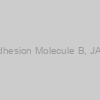 Human Junctional Adhesion Molecule B, JAM2 GENLISA ELISA |
|||
| KBH5529 | Krishgen | 1 x 96 wells | EUR 286 |
) Rabbit Polyclonal antibody to JAM-B (junctional adhesion molecule 2) |
|||
| TA308335 | Origene Technologies GmbH | 100 µl | Ask for price |
) Human Junctional Adhesion Molecule 2/JAM-B AssayLite™ Antibody (FITC Conjugate) |
|||
| 33424-05141 | AssayPro | 150 ug | EUR 370 |
) Human Junctional Adhesion Molecule 2/JAM-B AssayLite™ Antibody (RPE Conjugate) |
|||
| 33424-05151 | AssayPro | 150 ug | EUR 370 |
) Human Junctional Adhesion Molecule 2/JAM-B AssayLite™ Antibody (APC Conjugate) |
|||
| 33424-05161 | AssayPro | 150 ug | EUR 370 |
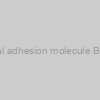 Junctional adhesion molecule B Antibody |
|||
| 20-abx109951 | Abbexa |
|
|
|
|||
 Junctional adhesion molecule B Antibody |
|||
| abx109951-100l | Abbexa | 100 µl | EUR 162.5 |
) Human Junctional Adhesion Molecule 2/JAM-B AssayLite™ Antibody (PerCP Conjugate) |
|||
| 33424-05171 | AssayPro | 150 ug | EUR 410 |
 Antibody) Anti-Mouse Junctional adhesion molecule A (JAM-A) Antibody |
|||
| 103-M257 | ReliaTech | 100 µg | EUR 399 |
|
Description: Members of the junctional adhesion molecule (JAM) family are type I transmembrane glycoproteins of the immunoglobulin (Ig) superfamily that are localized in the tight junctions between endothelial or epithelial cells and appear to be involved in leukocyte transmigration. JAM-A, also known as platelet adhesion molecule 1 (PAM-1) and platelet F11 receptor, contains two V-type Ig-like domains, forms homodimers, and interacts with LFA-1. JAM-B (vasculoendothelial or VE-JAM) and JAM-C each contain two Ig domains (one V-type and one C2-type), a cytoplasmic PDZ-binding motif and a PKC phosphorylation site. JAM-C interacts with MAC-1 and facilitates JAM-B interaction with integrin alpha 4 beta 1. |
|||
, partial) Recombinant Human Junctional adhesion molecule B (JAM2), partial |
|||
| CSB-YP011936HU | Cusabio | 5780 mg | Ask for price |
, partial) Recombinant Human Junctional adhesion molecule B (JAM2), partial |
|||
| CSB-EP011936HU | Cusabio | 1528 mg | Ask for price |
,partial) Recombinant Human Junctional adhesion molecule B(JAM2),partial |
|||
| AP72631 | SAB | 1mg | EUR 2303 |
|
|||
,partial) Recombinant Human Junctional adhesion molecule B(JAM2),partial |
|||
| AP70459 | SAB | 1mg | EUR 1978 |
|
|||
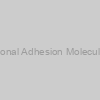 Human Junctional Adhesion Molecule B ELISA Kit |
|||
| IHUJAMBKT | Innovative research | each | EUR 702 |
|
|||
|
Description: Human Junctional Adhesion Molecule B ELISA Kit |
|||
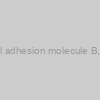 Mouse Junctional adhesion molecule B, Jam2 ELISA KIT |
|||
| ELI-28041m | Lifescience Market | 96 Tests | EUR 1038 |
) Junctional adhesion molecule B Antibody (HRP) |
|||
| 20-abx108442 | Abbexa |
|
|
|
|||
) Junctional adhesion molecule B Antibody (HRP) |
|||
| abx108442-100g | Abbexa | 100 µg | EUR 362.5 |
) Junctional adhesion molecule B Antibody (HRP) |
|||
| abx108442-20g | Abbexa | 20 µg | EUR 162.5 |
) Junctional adhesion molecule B Antibody (HRP) |
|||
| abx108442-50g | Abbexa | 50 µg | EUR 250 |
) Junctional adhesion molecule B Antibody (FITC) |
|||
| 20-abx107021 | Abbexa |
|
|
|
|||
) Junctional adhesion molecule B Antibody (FITC) |
|||
| abx107021-100g | Abbexa | 100 µg | EUR 362.5 |
) Junctional adhesion molecule B Antibody (FITC) |
|||
| abx107021-20g | Abbexa | 20 µg | EUR 162.5 |
) Junctional adhesion molecule B Antibody (FITC) |
|||
| abx107021-50g | Abbexa | 50 µg | EUR 250 |
) Junctional adhesion molecule B Antibody (Biotin) |
|||
| 20-abx105603 | Abbexa |
|
|
|
|||
) Junctional adhesion molecule B Antibody (Biotin) |
|||
| abx105603-100g | Abbexa | 100 µg | EUR 362.5 |
) Junctional adhesion molecule B Antibody (Biotin) |
|||
| abx105603-20g | Abbexa | 20 µg | EUR 162.5 |
) Junctional adhesion molecule B Antibody (Biotin) |
|||
| abx105603-50g | Abbexa | 50 µg | EUR 250 |
) Recombinant Human Junctional Adhesion Molecule A/JAM-A/CD321 (C-6His) |
|||
| AP75170 | SAB | 1mg | EUR 3209 |
|
|||
) Recombinant Human Junctional Adhesion Molecule A/JAM-A/CD321 (C-6His) |
|||
| C468-10ug | Novoprotein | 10ug | EUR 187.2 |
|
Description: Lyophilized from a 0.2 μm filtered solution of 20mM TrisHCl, 50mM NaCl, 100mM Glycine, pH 7.5. |
|||
) Recombinant Human Junctional Adhesion Molecule A/JAM-A/CD321 (C-6His) |
|||
| C468-1mg | Novoprotein | 1mg | EUR 2739.6 |
|
Description: Lyophilized from a 0.2 μm filtered solution of 20mM TrisHCl, 50mM NaCl, 100mM Glycine, pH 7.5. |
|||
) Recombinant Human Junctional Adhesion Molecule A/JAM-A/CD321 (C-6His) |
|||
| C468-500ug | Novoprotein | 500ug | EUR 1935.6 |
|
Description: Lyophilized from a 0.2 μm filtered solution of 20mM TrisHCl, 50mM NaCl, 100mM Glycine, pH 7.5. |
|||
) Recombinant Human Junctional Adhesion Molecule A/JAM-A/CD321 (C-6His) |
|||
| C468-50ug | Novoprotein | 50ug | EUR 442.8 |
|
Description: Lyophilized from a 0.2 μm filtered solution of 20mM TrisHCl, 50mM NaCl, 100mM Glycine, pH 7.5. |
|||
 Protein) Human Junctional Adhesion Molecule 3 (JAM3) Protein |
|||
| 20-abx651016 | Abbexa |
|
|
|
|||
 Protein) Human Junctional Adhesion Molecule 2 (JAM2) Protein |
|||
| 20-abx166507 | Abbexa |
|
|
|
|||
 Protein) Human Junctional Adhesion Molecule 1 (JAM1) Protein |
|||
| 20-abx168264 | Abbexa |
|
|
|
|||
 Protein) Human Junctional Adhesion Molecule 2 (JAM2) Protein |
|||
| abx166507-100g | Abbexa | 100 µg | EUR 537.5 |
 Protein) Human Junctional Adhesion Molecule 2 (JAM2) Protein |
|||
| abx166507-10g | Abbexa | 10 µg | EUR 212.5 |
 Protein) Human Junctional Adhesion Molecule 2 (JAM2) Protein |
|||
| abx166507-50g | Abbexa | 50 µg | EUR 375 |
 Protein) Human Junctional Adhesion Molecule 2 (JAM2) Protein |
|||
| abx680075-10g | Abbexa | 10 µg | EUR 225 |
 Protein) Human Junctional Adhesion Molecule 2 (JAM2) Protein |
|||
| abx680075-50g | Abbexa | 50 µg | EUR 325 |
 Protein) Human Junctional Adhesion Molecule 3 (JAM3) Protein |
|||
| abx651016-100g | Abbexa | 100 µg | EUR 487.5 |
 Protein) Human Junctional Adhesion Molecule 3 (JAM3) Protein |
|||
| abx651016-10g | Abbexa | 10 µg | EUR 200 |
 Protein) Human Junctional Adhesion Molecule 3 (JAM3) Protein |
|||
| abx651016-50g | Abbexa | 50 µg | EUR 350 |
 CLIA Kit) Human Junctional Adhesion Molecule 3 (JAM3) CLIA Kit |
|||
| 20-abx495949 | Abbexa |
|
|
|
|||
 CLIA Kit) Human Junctional Adhesion Molecule 1 (JAM1) CLIA Kit |
|||
| 20-abx493071 | Abbexa |
|
|
|
|||
 CLIA Kit) Human Junctional Adhesion Molecule 2 (JAM2) CLIA Kit |
|||
| 20-abx493072 | Abbexa |
|
|
|
|||
 Antibody) Junctional Adhesion Molecule 2 (JAM2) Antibody |
|||
| 20-abx327593 | Abbexa |
|
|
|
|||
 Antibody) Junctional Adhesion Molecule 2 (JAM2) Antibody |
|||
| abx430155-200ul | Abbexa | 200 ul | EUR 460.8 |
|
|||
 Antibody) Junctional Adhesion Molecule 2 (JAM2) Antibody |
|||
| abx430245-200ul | Abbexa | 200 ul | EUR 343.2 |
|
|||
 Antibody) Junctional Adhesion Molecule 1 (JAM1) Antibody |
|||
| 20-abx270085 | Abbexa |
|
|
|
|||
 Antibody) Junctional Adhesion Molecule 3 (JAM3) Antibody |
|||
| 20-abx338850 | Abbexa |
|
|
|
|||
 Antibody) Junctional Adhesion Molecule 3 (JAM3) Antibody |
|||
| 20-abx129330 | Abbexa |
|
|
|
|||
 Antibody) Junctional Adhesion Molecule 1 (JAM1) Antibody |
|||
| 20-abx173215 | Abbexa |
|
|
|
|||
 Antibody) Junctional Adhesion Molecule 2 (JAM2) Antibody |
|||
| 20-abx173216 | Abbexa |
|
|
|
|||
 Antibody) Junctional Adhesion Molecule 3 (JAM3) Antibody |
|||
| 20-abx173217 | Abbexa |
|
|
|
|||
 Antibody) Junctional Adhesion Molecule 3 (JAM3) Antibody |
|||
| 20-abx177235 | Abbexa |
|
|
|
|||
 Antibody) Junctional Adhesion Molecule 2 (JAM2) Antibody |
|||
| 20-abx128023 | Abbexa |
|
|
|
|||
 Antibody) Junctional Adhesion Molecule 1 (JAM1) Antibody |
|||
| 20-abx128588 | Abbexa |
|
|
|
|||
 Antibody) Junctional Adhesion Molecule 2 (JAM2) Antibody |
|||
| abx234435-100ug | Abbexa | 100 ug | EUR 610.8 |
|
|||
 Antibody) Junctional Adhesion Molecule 3 (JAM3) Antibody |
|||
| 20-abx216346 | Abbexa |
|
|
|
|||
 Antibody) Junctional Adhesion Molecule 2 (JAM2) Antibody |
|||
| 20-abx113297 | Abbexa |
|
|
|
|||
 Antibody) Junctional Adhesion Molecule 2 (JAM2) Antibody |
|||
| 20-abx148748 | Abbexa |
|
|
|
|||
 Antibody) Junctional Adhesion Molecule 2 (JAM2) Antibody |
|||
| 20-abx135898 | Abbexa |
|
|
|
|||
